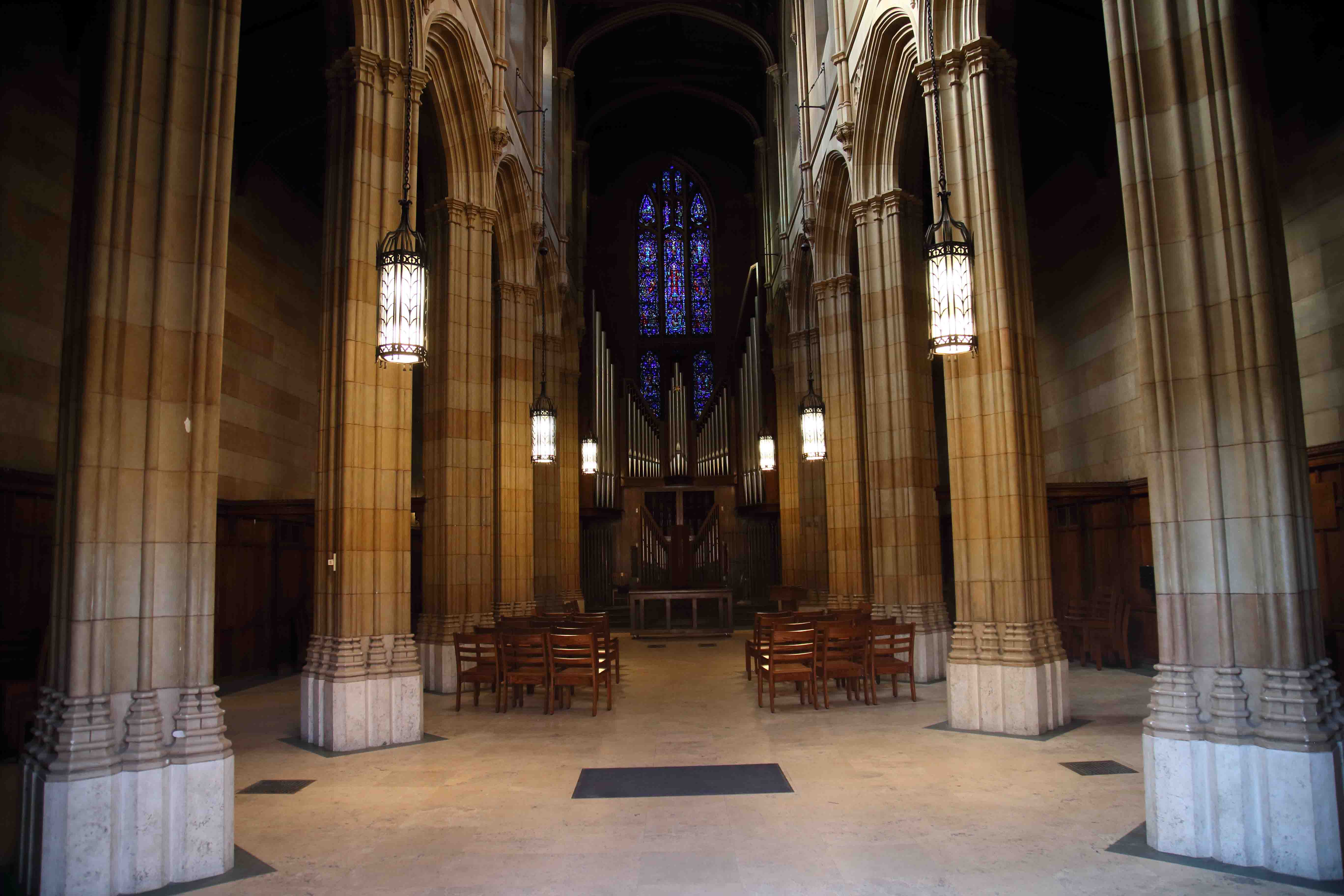
Dwight Hall accepted five projects out of eight entries on Thursday for its Social Innovation Lab, a resource center that provides advising and support to students pursuing social entrepreneurship projects.
This year marks the first time that Dwight Hall accepted projects for the initiative, a collaboration between Dwight Hall executive board members, professors, students and local entrepreneurs. The winning five projects boast missions that range from providing affordable prosthetics to developing countries to teaching peace initiatives in primary schools to raising awareness about mental health problems in China.
“All of the selected groups demonstrated an incredible passion to realize social change in innovative ways,” said Keniel Yao ’19, Dwight Hall impact analysis coordinator. “From reused prosthetics to Chinese student mental health, it proves that promising innovation and scale derive from a deep and personal understanding of the relevant community first and foremost.”
The five teams will receive support for project design and long-term planning, as well as consultations with selected advisors. In addition to providing physical workspace, grants and workshops, the lab offers member groups a showcase event to present ideas to potential investors. The teams were chosen based on their level of passion, innovation, potential impact and feasibility, according to the lab’s website.
Led by co-presidents Grace Jin ’20 and Barkley Dai ’20, Building Bridges, one of the winning projects, aims to promote cultural exchange between the U.S. and China. Last semester, the group established partnerships with the Yale Center Beijing, Peking University and the Yongyuan Foundation to fund and plan the project. While Building Bridges members formerly taught English at rural schools in China, the organization redirected its purpose this year “to do something with more sustainability and social impact,” Jin said.
The group is currently working on a mental health campaign that will be launched in China in August. In partnership with the Yongyuan Foundation, Building Bridges plans to produce and release a film documentary to promote discussions about mental health, an issue that is particularly stigmatized in China, according to Jin.
“To raise awareness for this extremely stigmatized issue, we need help with program planning, marketing skills, leadership development and nonprofit outreach to navigate the current social climate in China,” Jin said, adding that the lab will come in handy in that regard.
Another winning student venture, Penta, brings recycled prosthetics to amputees in developing countries. According to project leader Victor Wang ’18, a former staff reporter for the News, Penta seeks to create a platform to collect used prosthetics and medical equipment from amputees in the U.S. and redistribute them globally — specifically, in Southeast Asia and Vietnam. In addition to maintaining quality control and creating a re-customization process, the group ultimately hopes to create their designs and manufacture new prosthetics in the U.S.
“Given the political climate at the moment, it is more crucial than ever to foster innovation that crosses borders and aims to address social and health issues on a global level,” Wang said.
The Teaching Peace Initiative, a selected project that is directed by Fish Stark ’17, a staff columnist for the News, is an international student-run nonprofit that has created curricula for multiple grade levels to teach peace in classrooms. The group identifies and trains high school students to create clubs at their schools and teach the curricula in elementary and middle schools in their communities. The initiative aims to discourage bullying and promote tolerance, compassion, and nonviolence at large, according to the group’s website.
The other two winning projects include Nya Holder’s ’17 idea to establish a community recreation and empowerment center in the Bronx, and Elena Hodges ’17 and her teammates’ proposal to create a multilingual resource map of the Greater New Haven area for refugees, asylum seekers and formerly incarcerated people.
The lab was founded earlier this fall and garnered student interest through a biweekly speaker series focusing on entrepreneurship.







